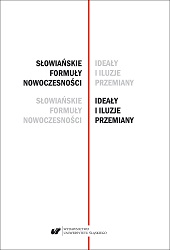Nowa poezja polityczna i nowa poezja społeczna – projekty bułgarskie z początków XXI wieku
New political poetry and new social poetry – Bulgarian projects at the begining of the 21st century
Author(s): Dorota Gołek-Sepetliewa
Subject(s): Literary Texts
Published by: Wydawnictwo Uniwersytetu Śląskiego
Summary/Abstract: In 2016, new political poetry and new social poetry projects were created in Bulgaria. Artistic proposals were created independently of each other and were published by representatives of various literary circles. The new political poetry is the original project of the poet and literary scholar Plamen Doynov, who consistently implements it in his two recently published volumes Sofia Berlin (2012) and Bal of tyrants (2016). The originators of the new social poetry are poets Vladimir Sabourin, Vasil Praskov and Ivaylo Merdzhanov, while the artistic initiative found its quick response and support among a large group of artists and representatives of various intellectual backgrounds. The poetic volume by Sabourin The Worker and Death (2016) is an example of the implementation of the postulates of the manifesto of new social poetry. It comments upon current political and social topics, suspicion and distance to the prevailing ideologies, an attitude of rebellion against the dominant processes, trends and literary traditions that have been going on for over two decades. Poetry emerging within the framework of new political and social poetry confirms the need to restore the strong subjective position of the artist in the artistic sense and in the public perspective – in the conditions of post-communist reality, not working through past, increasing conflicts and negative emotions: frustration, anxiety and trauma. It avoids easy moralizing, advocating on the side of a concrete (social or political) ideology and providing easy answers in the face of numerous crises and increasing antagonisms. Poetry is not a space separated from social phenomena. The poetry-forming poets become sensitive observers of the omnipresent reality, they want to articulate views and judgments heard in the public space.
- Page Range: 145-156
- Page Count: 12
- Publication Year: 2019
- Language: Polish
- Content File-PDF

